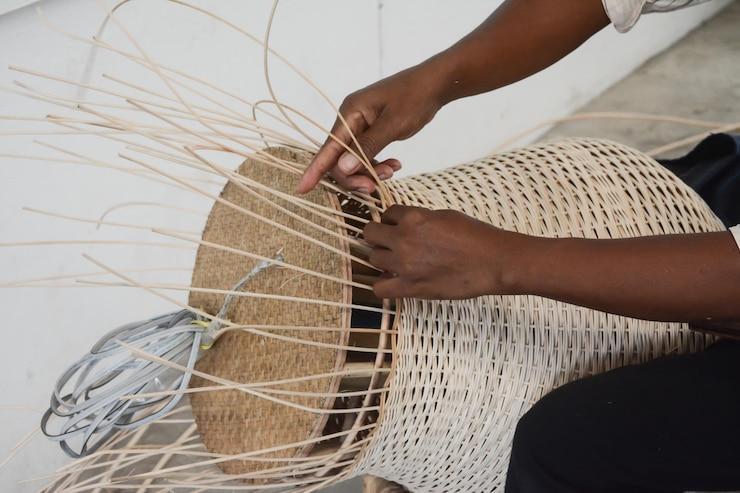Africa-Press – Botswana. Botswana’s rich natural resources provide unique opportunities for craft businesses. Indigenous materials such as mokola palm, reeds, and local fibers are central to traditional crafts like basket weaving, mats, and decorative items. Craft businesses that use these materials combine cultural heritage with economic opportunity, offering products that appeal to both local and international markets.
Mokola palm is one of Botswana’s most versatile materials. Its strong, flexible fibers are ideal for weaving baskets, hats, mats, and storage containers. Artisans use traditional techniques passed down through generations, ensuring authenticity and durability. Products made from mokola palm are valued for their natural appearance, strength, and cultural significance.
Basket weaving remains a key craft in rural communities. Artisans harvest palm and reed fibers, dye them with natural colors, and weave intricate patterns. Each piece reflects local identity, history, and skill. Modern craft businesses often adapt these traditional techniques to create contemporary designs, such as home décor, fashion accessories, and gift items, expanding their market appeal.
Craft businesses benefit from high demand for sustainable, handmade products. Global consumers increasingly seek eco-friendly alternatives to mass-produced goods. Products made from indigenous materials meet this demand while preserving Botswana’s cultural heritage. Marketing that highlights craftsmanship, natural materials, and ethical production can command premium pricing.
Training and skill development are essential for business growth. Artisans learn quality control, inventory management, and product diversification. Combining traditional techniques with modern design and packaging ensures competitiveness in local and international markets. Craft cooperatives provide collective bargaining power, reducing production costs and increasing market access.
Sourcing indigenous materials sustainably is critical. Overharvesting palm or reed fibers can damage ecosystems. Successful craft businesses work with local communities to manage resources responsibly, ensuring long-term availability. Ethical practices appeal to socially conscious buyers and reinforce the cultural value of handmade products.
Distribution channels include craft markets, online platforms, specialty stores, and export partnerships. Pop-up shops and collaborations with tourism lodges offer additional exposure to visitors seeking authentic Botswana crafts. Highlighting the story behind each product strengthens customer connection and encourages repeat purchases.
Craft businesses using Botswana’s indigenous materials preserve tradition while creating economic opportunities. By combining sustainable sourcing, skill development, modern design, and effective marketing, artisans can build profitable enterprises, promote cultural heritage, and reach markets at home and abroad.
For More News And Analysis About Botswana Follow Africa-Press






